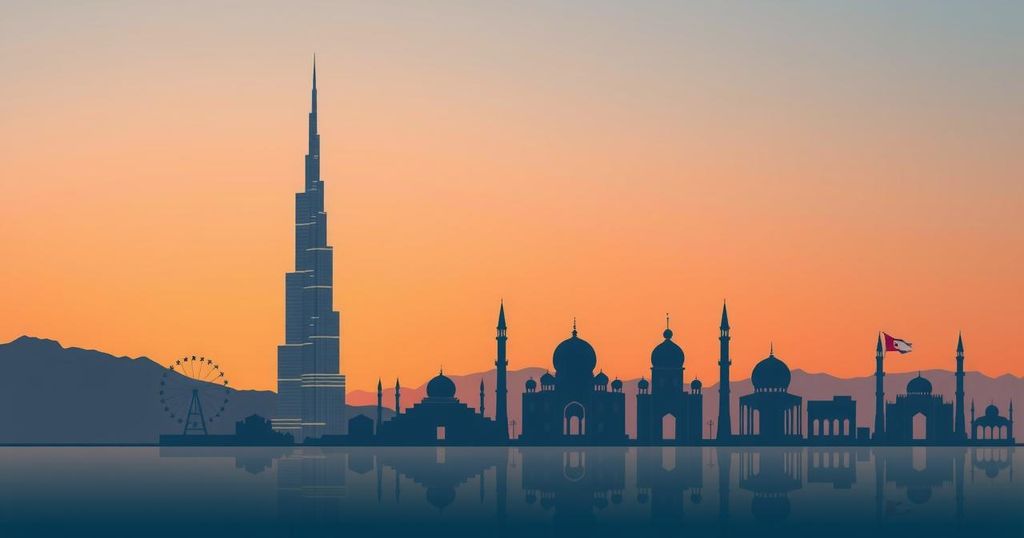German President Frank-Walter Steinmeier embarks on a three-day Middle East tour to address regional security and humanitarian issues in Syria and Gaza. His historic visit to Saudi Arabia marks significant bilateral discussions, followed by engagements in Jordan and Turkey. The tour aims to bolster Germany’s diplomatic presence amidst complex political dynamics in the region.
On Monday, German Federal President Frank-Walter Steinmeier began a pivotal three-day tour of the Middle East, engaging with leaders from Saudi Arabia, Jordan, and Turkey. The primary focus of the visit revolves around the evolving security landscape in Syria following the ousting of Bashar Assad and the current humanitarian crises in Gaza. Discussions will also include Iran’s diminished influence and the implications of U.S. foreign policy under President Trump.
Upon arriving in Riyadh, Steinmeier made history as the first German head of state to receive an official state visit in Saudi Arabia. He is set to meet with Crown Prince Mohammed bin Salman and will engage with local think tanks, as well as visit an arts center in the capital, Riyadh.
On Tuesday, the President will depart to Jordan, where he will visit German troops stationed at al-Azraq airbase engaged in the fight against ISIS. Jordan plays a critical role in regional stability, hosting a significant number of Syrian refugees. Steinmeier is expected to meet with King Abdullah II before concluding his Jordanian visit.
The tour will culminate in Turkey, where Steinmeier is scheduled to hold discussions with President Recep Tayyip Erdogan. With Turkey accommodating over 3 million Syrian refugees, the talks will focus on stabilizing Syria and addressing German interests, especially amid skepticism from some regional partners regarding Germany’s recent foreign policy actions in the Middle East.
Germany’s longstanding support for the Palestinian cause and its push for a two-state solution is well-noted. However, Germany’s unwavering support for Israel’s military actions against Hamas has raised concerns among Arab nations, potentially complicating Steinmeier’s discussions. The humanitarian impact of the Israeli military response in Gaza has resulted in significant displacement and casualties among the Palestinian population, further influencing regional dynamics.
The ongoing conflicts in the Middle East, particularly in Syria and Gaza, have created a complex security and humanitarian landscape. The recent shifts in power dynamics in the region, particularly following Bashar Assad’s ousting, highlight the need for international dialogue and cooperation. Germany has historically taken a diplomatic stance in the region, emphasizing support for Palestinian statehood while contending with the realities of ongoing violence and humanitarian crises. The implications of U.S. foreign policy changes under President Trump are also significant as they may influence Germany’s role and relationships in the region.
Steinmeier’s visit to Saudi Arabia, Jordan, and Turkey represents a crucial diplomatic effort amidst shifting alliances and humanitarian challenges in the Middle East. The discussions are expected to address pressing regional security concerns alongside Germany’s interests and historical commitments. However, the President may encounter skepticism from key partners due to Germany’s recent foreign policy stances concerning Israel and Palestine, which complicates the landscape for meaningful dialogue.
Original Source: www.dw.com




